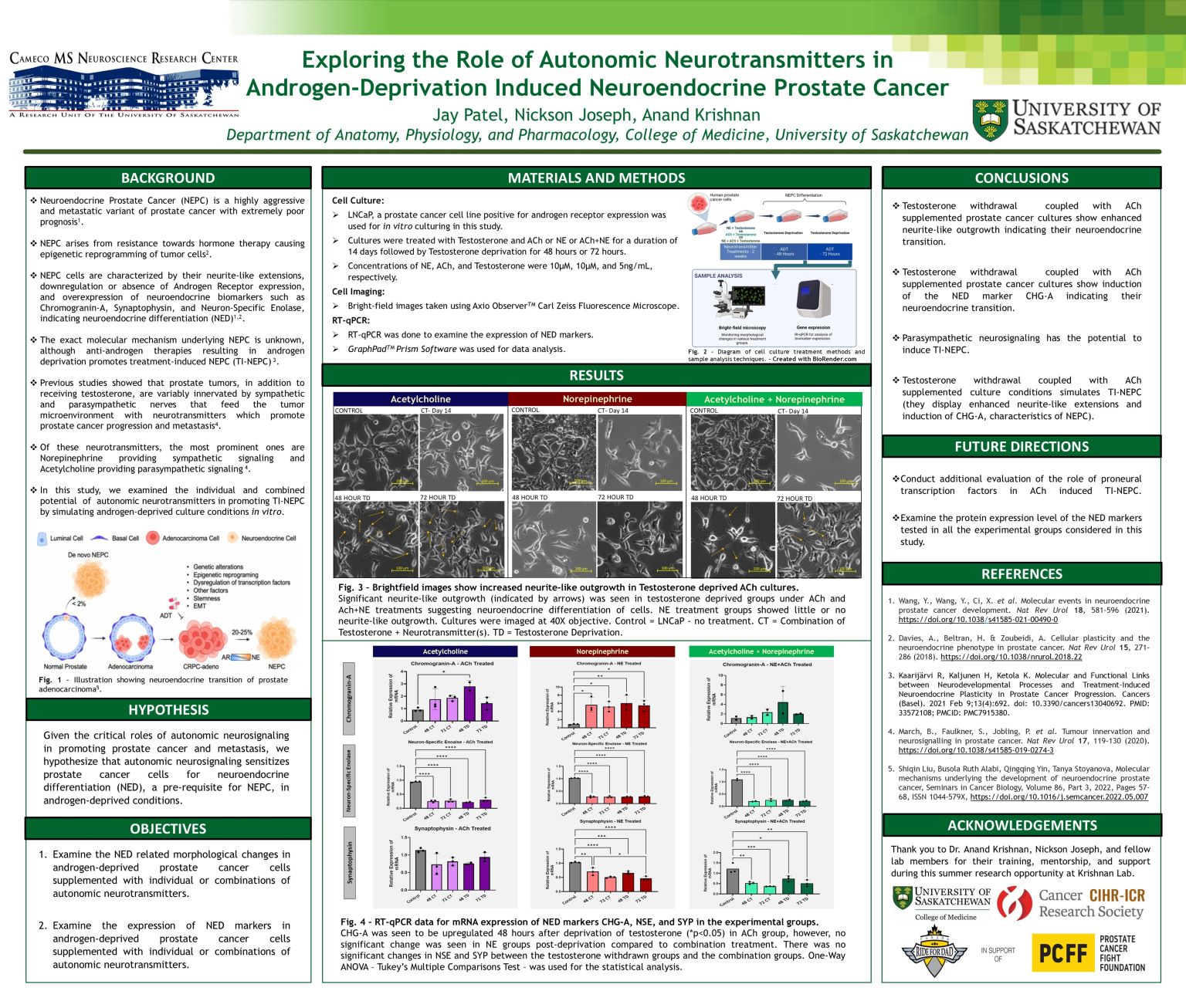
Exploring the Role of Autonomic Neurotransmitters in Androgen-Deprivation Induced Neuroendocrine Prostate Cancer
Jay Patel
Neuroendocrine Prostate Cancer (NEPC) is a lethal and highly metastatic subtype of prostate cancer (PC) that arises due to neuroendocrine differentiation (NED) of PC cells. Although the exact underlying mechanism transitioning PC to NEPC is unknown, anti-androgen therapy resulting in androgen deprivation is a well-known trigger for NEPC. The PC cells undergoing NED display increased neurite-like outgrowth and express NED markers, such as, Chromogranin-A, Neuron-Specific Enolase, and Synaptophysin. Innervation of prostate tumors by sympathetic and parasympathetic nerves promotes prostate cancer growth via the neurotransmitters, Norepinephrine (NE) and Acetylcholine (ACh). In this study, we examined if these neurotransmitters promote NEPC in androgen-deprived conditions. We cultured LNCaP cells with Testosterone+ACh or Testosterone+NE or Testosterone+ACh+NE for 14 days, followed by Testosterone deprivation for 48 hours or 72 hours. Bright-field imaging showed increased neurite-like outgrowth in ACh groups. RT-qPCR analysis showed variable expression across neuroendocrine biomarkers with CHG-A significantly upregulated in ACh groups. Overall, this study suggests that parasympathetic signaling driven by ACh has the potential to promote androgen-deprivation induced NEPC.
